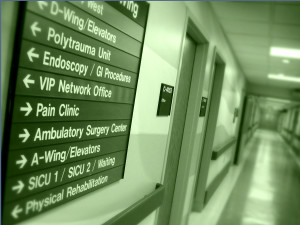New Jersey lawmakers in both houses are currently considering hospital tax exemption legislation that would alter the property tax liabilities of non-profit hospitals. In the Assembly, the bill is pending before the State and Local Government Committee. The measure could go before the full Senate in the next few weeks.

The legislation attempts to remedy the legal uncertainty created by the New Jersey Tax Court’s decision in A.H.S. Hosp. Corp. v. Town of Morristown. As previously discussed on this blog, the court held that Morristown Memorial Hospital failed to satisfy the criteria for property tax exemption as set forth in N.J.S.A. 54:4-3.6 because it was impossible to make a distinction between profit and non-profit activities in a variety of key areas. In its opinion, the court noted that “the operation and function of modern non-profit hospitals do not meet the current criteria for property tax exemption” and suggested that the Legislature offer clarification.
Under the proposed legislation (S-3299/A-4903), nonprofit hospitals that provide nonprofit medical services while also hosting for-profit medical activities would remain exempt from property taxation for the portions of hospital property used for medical purposes. However, they would be responsible for providing some financial support to their host municipalities to offset the costs of public safety services, such as police and fire safety services, that benefit these hospitals.
As explained in the statement accompanying the proposed legislation:
This bill would eliminate any uncertainty over the property tax exempt status of nonprofit hospitals that lease space to or share space with for-profit medical providers, but still qualify as nonprofit institutions, while ensuring that a readily calculable fair share contribution is made to the host communities that expend significant sums providing essential services that benefit these hospitals. Any voluntary payments made by a nonprofit hospital for the same purpose would count towards the obligation to provide a community service contribution.
Below are the bill’s key provisions:
- The property tax exempt status of a nonprofit hospital with for-profit medical providers on site would be preserved as long as the hospital remains organized as a nonprofit institution under State law.
- Nonprofit hospitals would be required to, in lieu of property taxes, pay an annual community service contribution to their host municipalities. The fee would be equal to $2.50 a day for each licensed bed at acute care facilities and $750 per day at satellite emergency care facilities.
- Municipalities would be required to provide five percent of a nonprofit hospital community service contribution, or voluntary payment that counts against such contribution, to the county in which the municipality is located to offset public safety services expenses borne by the county which benefit the hospital.
- All community service contribution proceeds must be used to fund public safety services such as police and fire protection, and emergency medical services, or be used to reduce the property tax levy.
- A nonprofit hospital would be allowed to apply to the New Jersey Health Care Facilities Financing Authority for an exemption from a community service contribution if the hospital had a negative operating margin in the prior tax year or is not in full compliance with the financial terms of any bond covenants to which it is subject, to help ensure that these hospitals may continue to operate and serve the community.
- Hospitals owned by the State or any political subdivision thereof would not be subject to the community service contribution required by the bill.
- The bill would also establish a commission, known as the Nonprofit Hospital Community Service Contribution Study Commission, to study and issue a report on the community service contribution system created by the bill.
We will be closely tracking the status of the proposed bill and will provide updates as they become available.
For more information about the proposed legislation or the legal issues involved, we encourage you to contact a member of Scarinci Hollenbeck’s Government Law Group.
